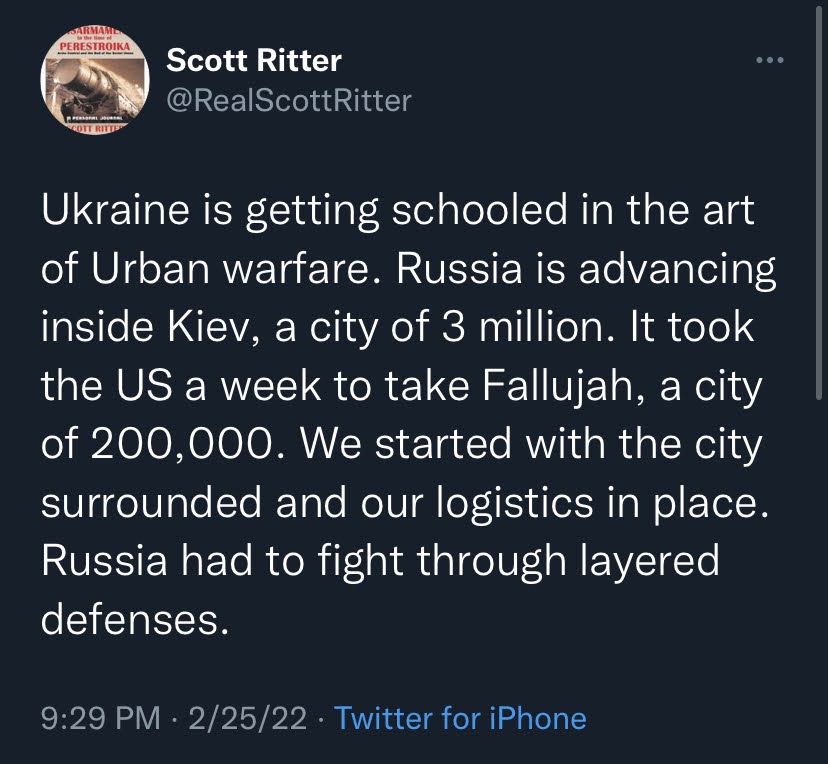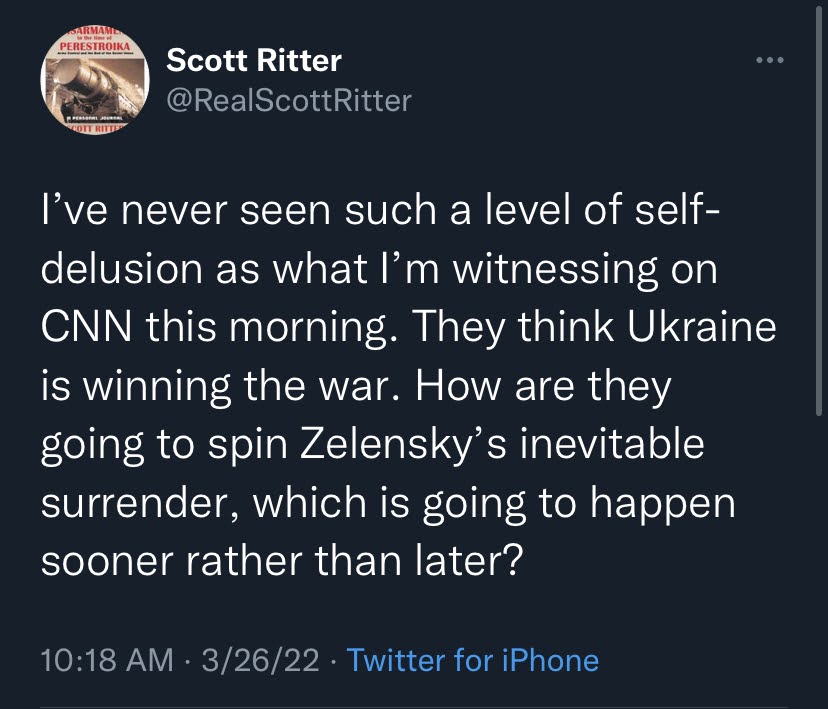In today's #vatnik soup I'll introduce an American arms inspector, convicted criminal and a pro-Russian propagandist, Scott Ritter (@RealScottRitter). He's best known for his biased takes on the Russo-Ukrainian War, his propaganda work for RT and for his sex offenses.
1/16
1/16

Scotty continued the family tradition of military service, and he served as the lead analyst for Marine Corps Rapid Deployment Force during the Soviet invasion of Afghanistan and the Iran-Iraq War. Ritter worked as a weapons inspector for the UN Special Commission between...
2/16
2/16

... 1991 and 1998. His main objective was to find and destroy possible WMD's and WMD-manufacturing capabilities in Iraq. UN inspectors were thrown out of Iraq in 1998 after which Ritter declared in an interview by Jim Lehrer that "without effective inspections, without ...
3/16
3/16

... effective monitoring, Iraq can in a very short period of time measured in months, reconstitute chemical and biological weapons, long-range ballistic missiles to deliver these weapons, and even certain aspects of their developing of nuclear weapons program".
4/16
4/16

His former UNSCOM boss, Richard Butler said that once Scott had made up his mind about something (usually about WMD's or other weapons), he'd be adamant about it, even when there was insufficient evidence to support his claims.
5/16
5/16

Journalist Matt Bai described Ritter as a person who "insists on his version of reality" and that he sees himself as the victim of a corrupted system. As a side note, research suggests that these type of people are more prone to conspiracy theories.
6/16
6/16

Ritter's views seems to be very much in line with his fellow ex-soldier, Douglas MacGregor: most - if not all - of his predictions have gone wrong, and his bias is extremely evident in all of his interviews.
In the "post-truth" society, ...
7/16
In the "post-truth" society, ...
7/16

... this hardly matters as once their ludicrous statements have been debunked, they've already moved on to the next ones. The profiles of Ritter and MacDougal are also very similar: both have been serving in the US Army and both have faced harsh criticism for their work.
8/16
8/16
Scott's been the subject of law enforcement operations twice. In Jun, 2001, he was charged with a misdemeanor crime of "attempted endangerment of the welfare of a child" after trying to set up a date with a police officer posing as a 16-year old girl.
9/16
9/16

This charge was later dismissed, but he was arrested again in Nov, 2009, after he had exposed himself to a police officer posing as a 15-year old girl. Ritter rejected a plea bargain and was in prison from Mar, 2012 until Sep, 2014.
10/16
10/16

He's said that Russia's invasion of Ukraine on Feb, 2022, was not "an unprovoked act of aggression, but rather a legitimate exercise of its right". He also talked about Russia just defending the puppet states of Luhansk and Donetsk, and that the Ukrainian Army was ...
11/16
11/16
... "nothing more than a puppet of NATO". Around Feb-Mar of 2022, Ritter made some interesting predictions of which all turned out to be false. For example, on 25, Feb, 2022 he said that "Ukraine is getting schooled in the art of Urban warfare" in Kyiv.
12/16



12/16




He's said that the National Police of Ukraine are responsible for the Bucha massacre, and called Joe Biden a "war criminal" for shifting the blame on the massacre on the Russians. He also writes anti-NATO and anti-US themed articles for the RT.
13/16


13/16



In Jan, 2023, Ritter interviewed Viktor Bout, a Russian arms dealer who was sentenced in the US to 25 years in prison for conspiring to sell weapons to a terrorist group. He had returned to Russia through a prisoner exchange in Dec, 2022.
14/16
14/16

In the interview Viktor claimed that he was convicted for crimes he never committed. Bout himself has been very eager about going to the front and fight against Ukraine. The movie Lord of War from 2005 starring Nicolas Cage is loosely based on Bout.
15/16
15/16
Ritter was supposed to be attending the "Rage Against the War Machine" rally as one of the speakers, but his picture and name was removed from the event's website in the past few days.
16/16


16/16



Support my work (and get some AI art!): buymeacoffee.com/PKallioniemi
Past soups: vatniksoup.com
Related soups:
Conspiracy theories:
Douglas MacGregor:
Past soups: vatniksoup.com
Related soups:
Conspiracy theories:
https://twitter.com/P_Kallioniemi/status/1611264337443684355
Douglas MacGregor:
https://twitter.com/P_Kallioniemi/status/1609831498156331008
• • •
Missing some Tweet in this thread? You can try to
force a refresh

































